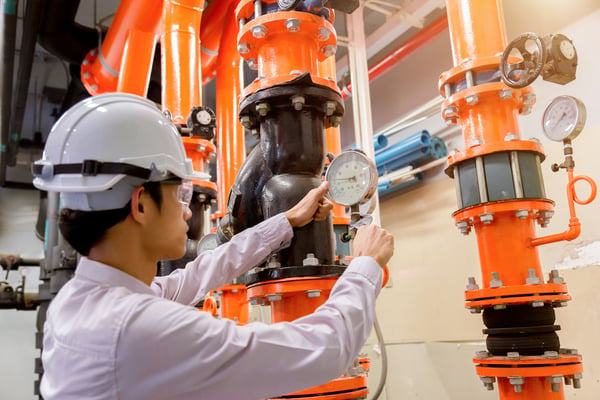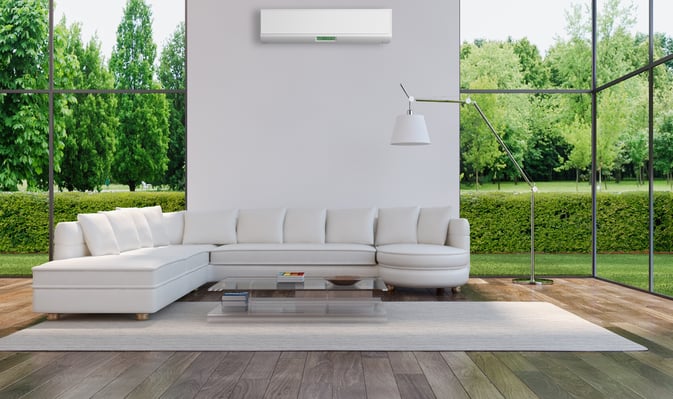How Can MEP Engineers Improve a Building?

MEP engineering is often associated with the design stage of projects, and getting approval from the local building department. However, there are many ways in which engineering services can benefit existing buildings. This article will provide an overview of some common building issues and areas of opportunity, and how a MEP engineering firm can help you.
Mechanical, electrical, and plumbing systems are responsible for most of the energy and water consumption in buildings. When these installations are designed optimally, their resource usage and operating costs are reduced. MEP design also helps create a suitable indoor environment for humans, covering aspects like air quality and water quality.
Upgrade your MEP systems: Reduce operating costs and improve your indoor environment.
Fixing Building Code and Local Law Violations
Local governments use building codes to regulate new construction and renovation projects, and these codes are reviewed and updated periodically. Additional requirements for buildings may also be published in the form of local laws.

Normally, a building is subject to the applicable code at the time of construction. This means there is no need to upgrade the property with every new code version. However, local laws often have retroactive requirements that apply to all buildings - new and existing.
- Non-compliance with building codes and local laws can bring legal and financial consequences for the owner. Therefore, these issues should be fixed as soon as possible.
- Since building codes and local laws cover technical aspects, violations can stay undetected in buildings. Getting a property inspected by a MEP engineering firm is the best way to find these issues.
After code and law violations have been found on your property, MEP engineers can also help you design a solution and get it approved by the local building department. There will likely be fees to pay with the local building department, but many penalties are waived when building owners are willing to find and fix code violations voluntarily.
Each state and municipality has its construction codes and laws. However, violations that affect fire protection systems or fuel-burning equipment tend to have the highest penalties, due to the hazards involved.
Reducing Electricity and Gas Bills with Energy Efficiency

MEP installations consume large amounts of energy, and especially HVAC equipment. However, well-selected energy efficiency measures can reduce consumption without affecting performance. It is commonly believed that energy efficiency sacrifices indoor environmental quality, but this is a misconception - both aspects of a building can be improved simultaneously.
Since every building is unique, the ideal combination of energy efficiency measures will change accordingly. For this reason, an energy audit is strongly recommended as the first step. MEP engineers can use energy modeling tools to analyze several design options and find the best configuration for your building.
Many energy efficiency measures are designed for specific buildings, but others can be used in nearly all projects. For example, LED lighting and HVAC equipment upgrades are recommended in most energy audits, unless the owner has improved these systems recently.
Implementing Water Conservation Measures

For a given floor area, energy bills tend to be higher than water bills. However, conserving both resources is important to reduce the environmental impact of buildings. Water consumption can be very high in older properties where plumbing fixtures have not been upgraded in a long time.
When there are heating and pumping costs involved, water conservation also counts as an energy efficiency measure. If a building consumes fewer gallons of water each month, these costs are reduced accordingly.
A simple and effective solution is using plumbing fixtures with the WaterSense label from the US Environmental Protection Agency.
- To get the label, a plumbing fixture must achieve at least 20% water savings concerning federal standards.
- In addition, the tests must be performed by an approved laboratory that is independent of the manufacturer.
- Higher savings can be expected when upgrading older plumbing fixtures since the savings are calculated based on the current federal standard.
Improving the Indoor Environment

Indoor environmental quality (IEQ) is a performance category in the LEED certification for green buildings. IEQ goes beyond air quality alone - covering aspects like thermal comfort, acoustics, and lighting. Water quality is also important, given its vital importance for humans.
Air quality has become a high-priority topic after the COVID-19 pandemic since there is evidence that viral particles can stay suspended in the air for hours. When indoor spaces are poorly ventilated, the accumulation of these particles can threaten occupants. ASHRAE recommends increased ventilation with outdoor air, upgrading filters to at least MERV 13, and deploying ultraviolet germicidal irradiation (UVGI).
Extended lockdowns have brought attention to another threat that can grow in building water systems - Legionella bacteria. This pathogen can cause pneumonia just like SARS-CoV-2, but with a fatality rate as high as 10%. Before reopening, building owners must test their water for this bacteria - stagnant water is the ideal environment for Legionella, especially at warm temperatures.
MEP engineers can also help you improve other aspects of the indoor environment, such as glare prevention and thermal comfort. According to the 3-30-300 rule from JLL Incorporated, the typical building uses $3/sf in utilities, $30/sf in rent, and $300/sf in payroll. Keeping employees motivated and productive is socially responsible, but also a smart business decision.

Anuj Srivastava
Anuj Srivastava is a principal partner at NY Engineers. He is known for his MEP franchise market knowledge. Anuj is currently leading a team of 100+ MEP/FP engineers and has successfully led over 1500 franchise projects in the US.
Join 15,000+ Fellow Architects and Contractors
Get expert engineering tips straight to your inbox. Subscribe to the NY Engineers Blog below.

